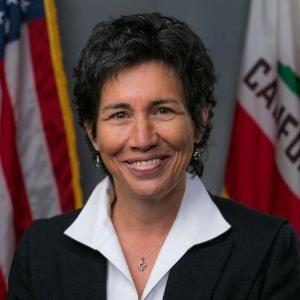The controversial harm reduction intervention may win its first foothold in the US.
A voter initiative to do just that has been filed with state officials.
Cops and politicians have been raising the alarm about a problem that doesn't exist.
The 2017 International Drug Policy Reform Conference is the major biannual gathering of drug policy reformers from around the world.
A group of federal representatives tell Attorney General Sessions to quit blocking marijuana research, the White House wants data on Massachusetts medical marijuana patients, and more.
Yee-haw! A Philly drug task force officer gets nailed for exchanging drugs for sex, a Pennsylvania cop gets busted after being found ODing on stolen drugs on the evidence room floor, and more.
California is hiring pot regulators, Michigan is looking for medical marijuana stakeholders to craft new dispensary regulations, Oregon's governor and top cop stick up for legal weed in a letter to Attorney General Sessions, and more.
A bipartisan group of congressmen call on the attorney general to quit being an obstacle to medical marijuana research, the Colorado governor defends the state's pot law from Sessions, the Minnesota governor just says no to legalization, and more.
The White House is sniffing around Massachusetts medical marijuana patient data, the FDA has granted breakthrough drug status for MDMA as a treatment of PTSD, the DEA warns of a looming tide of cocaine, the State Department's top anti-drug official calls it quits, and more.
San Francisco gets a cannabis czar, the Border Patrol reminds Mainers it's still federally illegal, Maryland's medical marijuana grower picture is getting clarifiied, and more.
This article was produced in collaboration with AlterNet and first appeared here.
As we mark International Overdose Awareness Day on August 31, California is on the verge of taking a serious, yet controversial, step to cut down on drug deaths. A bill that would allow a number of counties in the state to set up supervised drug consumption sites -- Assembly Bill 186 -- is now only a Senate floor vote away from landing on the desk of Gov. Jerry Brown (D).

The long-operating InSite safe injection site in Vancouver (Creative Commons)
Such facilities, also known as safe injection sites, typically allow drug users to inject their own drugs under medical supervision on premises with needles and related equipment provided by the site. The sites also serve as a point of contact between injection drug users and social service and treatment providers. But they infuriate social conservatives, who see them as coddling or condoning illicit drug use.
Although such facilities operate in a number of European countries, as well as Australia and Canada, and have been shown to provide numerous public health benefits, including a reduction in overdose deaths, no sanctioned supervised drug consumption sites are operating in the US.
Which is not to say there are none operating: Earlier this month, two researchers published a report on an unsanctioned -- and potentially illegal -- supervised drug consumption site operating since 2014 in an unnamed US city. They offered little data, but their main finding was that no one had died injecting drugs at the site. Two people overdosed, but were revived with naloxone administered by on-site medical staff.
And efforts are well underway in Seattle and surrounding King County, Washington, to get sites up and operating there. But no state has passed a law authorizing the widespread use of the facilities. California came close last year, and of the six states where such legislation has been filed this year, it's the nearest to victory.
That's only somewhat consoling to Assemblywoman Susan Eggman Talamantes (D-Stockton), the author of the bills both this year and last. In a Tuesday conference call, she decried the legislature's blocking of this proven public health policy intervention in 2016 and pointed to the cost of a year's delay.

California Assemblywoman Susan Eggman (D-Stockton) is leading the fight. (ca.gov)
"The studies show they work. Treatment goes up, overdoses go down, and we also see a reduction in street use around facilities, as well as reductions in HIV and Hep C," Eggman noted. "But that doesn't always make sense in politics. Some 3,600 Californians have died of drug overdoses since we couldn't pass this last year."
The bill allows eight counties -- Alameda, Fresno, Humboldt, Los Angeles, Mendocino, San Francisco, San Joaquin, and Santa Cruz -- or cities within those counties to establish safe injection sites under a pilot program that would expire in January 2022. Sites would be required to do the sorts of things sites are supposed to do: "provide a hygienic space supervised by health care professionals, as specified, where people who use drugs can consume pre-obtained drugs, and provide sterile consumption supplies;" administer needed medical treatment; provide access to referrals for drug treatment, mental health, medical, and social services; and provide education on overdose and infectious disease prevention.
The bill also bars safe injection workers and clients from being charged with drug-related crimes for actions within a safe injection site program.
"I'm a social worker," Eggman explained. "During the 1980s, I did drug and alcohol counseling, and I saw the epidemic g from heroin to crack to meth. And now we're seeing more and more suffer from addiction. I had to ask myself what made sense from a public policy perspective."

A clean, well-lit place to shoot dope. (vch.ca)
Safe drug consumption sites are one response that do make sense from a public policy perspective, but they can be a hard sell, and not just with social conservatives. In laid-back Santa Cruz, a preemptive NIMBY campaign has appeared.
"Santa Cruz is known as a progressive place, willing to try new things, so I was surprised at the pushback," Eggman confessed. "I think some activists found out about it early and were very vocal, but we've been working very carefully with them since then. We've had to explain the bill doesn't force them to do anything, that there has to be a lot of input before anything happens, that there has to be public hearings and a vote by an elected body."
But before any of that happens, the bill needs to actually pass the Senate, where its prospects are good, and then be signed into law by Gov. Brown, who has not pronounced one way or the other on it.
"We're trying to provide data for the governor to get a signature for this pilot program," Eggman said. "It's not for everybody, but it is a tool for saving lives and reducing addiction."
Will California actually get it done this year? Stay tuned.
back to top
This article was produced in collaboration with AlterNet and first appeared here.
It could be up to California voters to make the state the first in the nation to allow for the use and sale of psilocybin, the mind-altering component of magic mushrooms.

The California Psilocybin Legalization Initiative has been filed with state officials. (Greenoid/Flickr)
On Friday, Kevin Saunders, a candidate for mayor in the Monterrey County town of Marina, filed the
California Psilocybin Legalization Initiative with the state attorney general's office. The initiative would exempt people 21 and over from state criminal penalties for using, possessing, cultivating, transporting, and selling psilocybin.
Filing an initiative is just the first step, though. The measure must be submitted for public comment for 30 days and then given a circulating title and summary by the attorney general's office before it is approved for signature gathering. If and when it is approved, campaigners would then have to gather some 365,880 valid voter signatures to be placed on the November 2018 ballot.
Saunders told the Los Angeles Times that psilocybin helped him get over an addiction to heroin a decade ago. "I think we're seeing something that could literally heal our brothers and sisters," he said. "We're talking about real cutting-edge stuff."
Using the initiative process, California became the first state in the nation to legalize medical marijuana in 1996. And while it wasn't the first state to legalize marijuana via the initiative process -- Colorado and Washington led the way in 2012 -- the state legalized recreational marijuana via an initiative last year.
The initiative and referendum process has been criticized as inflexible, circumventing planning, and relying on an uninformed electorate, and it is also open to criticism as a tool for corporate interests. But it has proven an invaluable tool for advancing the cause of drug reform in the face of state legislatures resistant to change.
All eight states that pioneered marijuana legalization did so through the initiative process. No state has yet legalized marijuana through the legislative process, though some appear close. And the pioneering medical marijuana states all did it through the initiative process as well. After California approved it in 1996, it was five years before Hawaii became the first state to okay it legislatively.
California may again be poised to break down the walls of prohibition -- this time with natural psychedelics.
back to top
This article was produced in collaboration with AlterNet and first appeared here.
Fentanyl is serious business. The synthetic opioid is 50 times stronger than heroin and is linked to huge numbers of opioid overdose deaths. It may be mixed in with heroin or other powder drugs, producing a more potent high than users expect, and the results are too often fatal.

fentanyl... not marijuana (Creative Commons)
So it's not surprising that claims that fentanyl has shown up in marijuana causes alarm bells to ring. But there's not a scintilla of evidence for it, and the claims are doubly damaging. Scaring pot smokers away from a substance that has no overdose potential is not a good thing, and neither is raising fears about opiated weed when
weed may actually help people suffering from opioid addiction.
Still, like a vampire, the myth of marijuana laced with the deadly opioid fentanyl refuses to die. It first went nationwide in June, thanks to an Ohio U.S. senator's press conference, and while a VICE debunking at the time should have driven a stake through its heart, it has reared up once again this month, most recently thanks to a local prosecutor in Tennessee.
"There are some marijuana dealers that will tell their clients that I have no doubt there is fentanyl in it and some of the more addictive folks, especially folks that also use other drugs, will get that marijuana laced with fentanyl in hopes of getting a better high," District 24 Attorney General Matthew Stowe told a credulous WKRN-TV in an interview last week. "The bottom line is, anyone, anywhere could mix fentanyl and marijuana and there's no way of knowing it until it's too late."
But wait, there's more: "Marijuana laced with fentanyl can be extremely deadly and to anyone who touches it, taste it, smokes it [or] anything else of that nature," Stowe claimed. "If it's laced with fentanyl, marijuana can be the deadliest drug there is."
Marijuana laced with fentanyl would be deadly -- if such a thing existed. There is no evidence it does.
There are a couple of reasons such a concoction is unlikely. First, fentanyl is typically a white powder and, unlike drugs such as heroin or even cocaine, which are also powders, marijuana is green plant material. Buds adulterated with white powders would look like buds adulterated with white powders.
Secondly, no one even seems to know if smoking fentanyl in weed would even work. Chemist Kirk Maxey, who helps law enforcement agencies like the DEA test suspected synthetic opioids, told VICE he doesn't know if it's scientifically possible.
"Documenting the pipe chemistry of fentanyl in leaf material would be a research paper," he said. "And I don't think it's been done yet."
Still, such obvious objections haven't stopped the spread of the myth, which may have originated in a February Facebook post from the Painesville Township Fire Department in northeast Ohio. That post, which quickly went viral, reported that three men had reported overdosing after smoking "marijuana laced with an unknown opiate." It was picked up by a local ABC TV affiliate, which reported "three separate incidents, but all with the same result -- overdoses from opiate-laced marijuana."
It wasn't true. As Cleveland.com reported shortly afterward, toxicology results showed that "the three people who claimed they had overdosed on marijuana laced with an unknown opiate actually used crack cocaine and other drugs."
The media hubbub died down, but the seed was planted, growing through the spring in the fertile soil of an Ohio gripped by a deadly opioid epidemic and filled with policemen and politicians willing to fertilize it with healthy doses of manure. In June, it blossomed.

marijuana... not fentanyl (Creative Commons)
"Marijuana laced with fentanyl: police warn of another potentially dangerous drug mixture,"
News 5 Cleveland reported on June 14. There weren't any actual cases of the pot/fentanyl mixture showing up, but "police said the warning was necessary to alert people, especially parents, to the potential risk."
And politicians. Five days later, Ohio U.S. Senator Rob Portman (R) held a Cincinnati press conference on the opioid crisis with Hamilton County Coroner Lakshmi Sammarco, whose reported remarks helped give the myth new life.
"We have seen fentanyl mixed with cocaine," said Sammarco. "We have also seen fentanyl mixed with marijuana."
The comment rocketed around the web, rousing alarm and raising the specter of innocent pot smokers felled by deadly adulterants, but there was less to it than meets the eye. When, unlike other media outlets that simply ran with the story, VICE actually reached out to Sammarco, the story fell apart.
Sammarco said her quote had been misinterpreted and that her office hadn't actually seen any fentanyl-laced weed. Sammarco told VICE that Sen. Portman had mentioned to her that it had been spotted in northeast Ohio -- apparently based on that erroneously News 5 Cleveland report.
When VICE contacted Portman's office about the origin of the fentanyl in weed story, spokesman Kevin Smith replied only "I don't have anything on that," before hanging up the phone.
Despite the baselessness of the claim, it was back again this month. Police and health officials in London, Ontario, sent out warnings after people who claimed to have only smoked pot came back positive for opioids on urine drug tests, without ever considering the possibility that those people weren't telling the truth.
Canadian Federal Health Minister Jane Philpott had to step in to put a stop to the nonsense: "We have confirmed this with chiefs of police [and] law enforcement officials across this country -- there is zero documented evidence that ever in this country cannabis has been found laced with fentanyl," she told the London Free Press. "It's very important that we make sure that that message is clear."
That didn't stop police in Yarmouth, Massachusetts, from generating a similar story just days later. It was another case of a man who overdosed on opioids claiming to have only smoked pot. Police there said they "believe that is possible that the marijuana was laced with fentanyl, which police are starting to see more and more across the country."
Except they're actually not. That first batch of fentanyl-laced marijuana is yet to be discovered. But that hasn't stopped prosecutor Stowe any more than it's stopped the other cops, politicians, and hand-wringing public health officials from propagating the misinformation. This is Reefer Madness for the 21st Century.
back to top

DPA conference vigil, Albuquerque, 2009
The 2017 International Drug Policy Reform Conference will convene in Atlanta, Georgia on October 11-14. More than 1,500 people who believe the war on drugs has failed will be in attendance to network, to strategize and to lift up policies grounded in science, compassion, health and human rights.
Attendees will join a broad range of drug policy stakeholders -- activists, academics, healthcare and public health advocates, veterans, formerly incarcerated people, elected officials, students, and many others from around the country and across the globe!
This year, attendees will have the opportunity to spend three days deepening connections with people committed to finding alternatives to the war on drugs while participating in sessions facilitated by leading experts.
Visit http://www.reformconference.org to register. Get updates on the Reform Conference on Facebook and Twitter, and follow hashtag #NoMoreDrugWar.
back to top
A group of federal representatives tell Attorney General Sessions to quit blocking marijuana research, the White House wants data on Massachusetts medical marijuana patients, and more.
NationalLast Thursday, a bipartisan group of federal lawmakers told Sessions to stop blocking marijuana research. Two Republican and two Democratic congressmen have sent a letter to Attorney General Jeff Sessions telling him to quit using the Justice Department to block medical marijuana research. In the letter signed by Reps. Earl Blumenauer (D-OR), Matt Gaetz (R-FL), Jared Polis (D-CO), and Dana Rohrabacher (R-CA), the congressmen referenced a recent report that Justice was blocking the DEA from moving forward on applications from scientists to cultivate marijuana for research purposes. Instead of delaying the application process, the congressmen wrote, "we encourage you to proceed with rapidity on the DEA's permitting process, as we believe it is in keeping with President Trump's campaign promises, and the best interests of the American people."
Maryland
On Monday, the state issued three more medical marijuana grower licenses. The state Medical Cannabis Commission issued final licenses to three more medical marijuana growers. The move came despite the growers missing a deadline earlier this month. Two other grower applicants were granted formal extensions. The state had given 15 companies a shot at the licenses; nine had already been approved. Now, with Monday's action, all but one of them are on track to supply the market.
Massachusetts
Last Friday, the White House was seeking data on state medical marijuana users. The National Marijuana Initiative, part of the Trump administration's anti-drug task force, has asked the state Department of Public Health to provide data on the health conditions cited by medical marijuana users. The department has already provided data on patient by age and gender, but said it was considering whether to hand over additional data.
Michigan
Last Thursday, regulators were seeking participants for stakeholder working groups. The state Bureau of Medical Marihuana Regulation is forming stakeholder working groups to help guide and set policy on regulations for a new law that will allow dispensaries in the state. The bureau is working with the Medical Marijuana Licensing Board to come up with regulations for areas including growing, processing, transport, and related issues. Click on the link for information about how to apply to participate.
Tennessee
Last Friday, legislative leaders announced they would study whether to legalize medical marijuana. Lt. Gov. Randy McNally (R) and House Speaker Beth Harwell (R-Nashville) announced in a that they are forming an ad hoc committee to study whether the state should legalize medical marijuana. The lawmakers said they would undertake a comprehensive review of the matter. The committee will consist of 10 legislators.
[For extensive information about the medical marijuana debate, presented in a neutral format, visit MedicalMarijuana.ProCon.org.]
back to top
Yee-haw, it's getting crazy out there: A Philly drug task force officer gets nailed for exchanging drugs for sex, a Pennsylvania cop gets busted after being found ODing on stolen drugs on the evidence room floor, and more. Let's get to it:
In Johnstown, Pennsylvania,
a former Johnstown police officer was arrested last Thursday after being found suffering from an apparent drug overdose at the police station. William Slisz is accused of repeatedly stealing heroin from an evidence locker beginning in 2015 and later from the secure evidence room. After losing the key to that room, he allegedly crawled through the ceiling into a co-worker's office and got another key. Then, last September, he hammered a hole through the evidence room wall before being found unconscious and revived with naloxone. He is charged with burglary and evidence tampering. No word on why it took prosecutors nearly a year to charge him.
In Charlotte, North Carolina, a Charlotte-Mecklenburg police officer was arrested Tuesday for fraudulently obtaining prescription drugs. Officer Jennifer Wolfe, 37, went down after an employee of a dental practice contacted the department and an investigation revealed she had received a fraudulent prescription for opioid pain relievers from another employee of the practice. She is charged with five counts of obtaining a Schedule II controlled substance by fraud.
In Philadelphia, a former Philadelphia police narcotics officer pleaded guilty last Friday to trading heroin and other drugs for sexual favors from women, including one who got high and then was involved in a car wreck that killed a 90-year-old woman. Stanley Davis, 50, a member of an FBI narcotics task force, admitted enticing two women he met in Kensington into a series of sexual encounters in New Jersey motel rooms and in his assigned police vehicle. Davis went down after the fatal wreck, when the woman involved told investigators she got her dope from Davis. He pleaded guilty in federal court to drug distribution charges. Sentencing will come later.
In Missoula, Montana, a former Missoula police officer was sentenced last Wednesday to probation for stealing narcotics from the State Crime Lab. Steven Brester, 55, had been a 20-year veteran police officer before taking a job at the lab, apparently so he could gain access to opioids he had gotten himself strung out on after a car accident. At least 50 drugs cases in the state were impacted by Brester's thefts. He was charged with tampering with records, tampering with evidence, and criminal possession of dangerous drugs, with prosecutors recommending a five-year prison sentence followed by 10 years on probation. But the judge just gave him 10 years' probation.
In Hazelton, West Virginia, a Hazelton US Penitentiary guard was sentenced Monday to eight months behind bars for providing marijuana for an inmate. Cody Tyler Layman, 32, pleaded guilty to one count of introduction of prohibited item -- marijuana in a prison.
back to top
California is hiring pot regulators, Michigan is looking for medical marijuana stakeholders to craft new dispensary regulations, Oregon's governor and top cop stick up for legal weed in a letter to Attorney General Sessions, and more.
Marijuana PolicyCalifornia Seeks to Hire Pot Regulators. With legal recreational cultivation and sales set to begin early next year, the state is looking to hire more than 120 employees in its Bureau of Cannabis Control, CalCannabisCultivation Licensing office, and the Department of Public Health. Most of the positions are for program and legal analysts, information systems analysts, and staff services managers, but there are also positions for 16 environmental scientists around the state. Get more information at: https://jobs.ca.gov.
Massachusetts Governor Names Legalization Foe to Pot Regulatory Board. Gov. Charlie Baker (R) has named Sen. Jennifer Flanagan (D-Leominster) to the five-member Cannabis Control Commission. Flanagan opposed the successful initiative that legalized marijuana in the state, but played a key role in writing a 2016 state law aimed at easing the state's opioid epidemic, and Baker touted her experience with substance abuse prevention and treatment and recovery as key to the achieving the state's goal of "effective, responsible, and safe implementation of adult use of marijuana."
Oregon Governor, Head of State Police Defend Legal Marijuana in Letters to Sessions. Gov. Kate Brown (D) and State Police Superintendent Travis Hampton sent letters to US Attorney General Jeff Sessions Tuesday defending the state's legal marijuana industry. They criticized an earlier Sessions letter to them that cited an Oregon State Police draft report that said Oregon marijuana was being diverted to other states. Brown and Hampton said the report was only a draft and had flawed data and conclusions. Brown also noted that the state has adopted new laws aimed at making it easier to go after people unlawfully exporting Oregon pot.
Medical Marijuana
Michigan Regulators Seeks Participants for Stakeholder Working Groups. The state Bureau of Medical Marihuana Regulation is forming stakeholder working groups to help guide and set policy on regulations for a new law that will allow dispensaries in the state. The bureau is working with the Medical Marijuana Licensing Board to come up with regulations for areas including growing, processing, transport, and related issues. Click on the link for information about how to apply to participate.
International
Philippines Human Rights Agency Raises Alarm Over House-to-House Drug Testing. The Philippines Commission on Human Rights said Thursday expressed concern over house-to-house drug testing in Quezon City neighborhoods. In a statement, commission Chairperson Chito Gascon said he worried that anyone testing positive for drugs could be put on a drugs watch list and possible later be killed. Gascon noted that there is no provision in Philippine law allowing police to conduct drug tests. "While the Commission recognizes the efforts of the law enforcement agents in curbing the deleterious effects of dangerous drugs, they must be constantly mindful of the reasonable limits of their authority," he said. Police denied they were going house-to-house to drug test people, although a photograph accompanying the linked article appears to show them doing just that.
back to top
A bipartisan group of congressmen call on the attorney general to quit being an obstacle to medical marijuana research, the Colorado governor defends the state's pot law from Sessions, the Minnesota governor just says no to legalization, and more.
Marijuana PolicyColorado Governor the Latest to Stick Up for Legalization. Gov. John Hickenlooper (D) and Attorney General Cynthia Coffman (R) sent a letter Thursday to US Attorney General Jeff Sessions in response to a critical letter they received from him about the state's marijuana legalization. In the letter, they defended legalization, saying the state's laws and regulations are "effective" and detailing statistics they said buttressed their case. "The State of Colorado has worked diligently to implement the will of our citizens and build a comprehensive regulatory and enforcement system that prioritizes public safety and public health," the letter said. "When abuses and unintended consequences materialize, the state has acted quickly to address any resulting harms. While our system has proven to be effective, we are constantly evaluating and seeking to strengthen our approach to regulation and enforcement."
Minnesota Governor Just Says No to Marijuana Legalization. Gov. Mark Dayton (DFL) said Thursday marijuana legalization wouldn't happen on his watch. Responding to an audience question during an interview at the state fair, Dayton listed problems related to drug abuse, although he concentrated on opioids, and said legalizing pot would send a bad signal. "If somebody wants to use marijuana, go visit California or Colorado," Dayton continued. "But don't bring it back here. But I don't see it improving the quality of life of those societies."
Nevada Gaming Commission Just Says No to Marijuana Anything. In a meeting Thursday, the state Gaming Commission made clear that there is no place for marijuana in the gambling industry as long as it remains federally illegal. Commissioners agreed that businesses holding gaming licenses should not host events promoting the use, cultivation, or sale of marijuana, nor should licensees maintain business relationships with pot companies, even landlord-tenant relationships. The commission didn't even get to the issue of pot smoking, whether by guests in casino hotel rooms or by employees. Those and more issues will be dealt with in coming meetings of the commission.
Medical Marijuana
Federal Lawmakers Tell Sessions to Stop Blocking Marijuana Research. Two Republican and two Democratic congressmen have sent a letter to Attorney General Jeff Sessions telling him to quit using the Justice Department to block medical marijuana research. In the letter first reported by MassRoots and signed by Reps. Earl Blumenauer (D-OR), Matt Gaetz (R-FL), Jared Polis (D-CO), and Dana Rohrabacher (R-CA), the congressmen referenced a recent report that Justice was blocking the DEA from moving forward on applications from scientists to cultivate marijuana for research purposes. Instead of delaying the application process, the congressmen wrote, "we encourage you to proceed with rapidity on the DEA's permitting process, as we believe it is in keeping with President Trump's campaign promises, and the best interests of the American people."
back to top
The White House is sniffing around Massachusetts medical marijuana patient data, the FDA has granted breakthrough drug status for MDMA as a treatment of PTSD, the DEA warns of a looming tide of cocaine, the State Department's top anti-drug official calls it quits, and more.

Cocaine supplies and seizures are at record levels, the DEA says. (US CBP)
White House Seeks Massachusetts Data On Medical Marijuana Users. The National Marijuana Initiative, part of the Trump administration's anti-drug task force, has asked the state Department of Public Health to provide data on the health conditions cited by medical marijuana users. The department has already provided data on patient by age and gender, but said it was considering whether to hand over additional data.
Tennessee Lawmakers to Study Whether to Legalize Medical Marijuana. Lt. Gov. Randy McNally (R) and House Speaker Beth Harwell (R-Nashville) announced in a letter last Friday that they are forming an ad hoc committee to study whether the state should legalize medical marijuana. The lawmakers said they would undertake a comprehensive review of the matter. The committee will consist of 10 legislators.
Ecstasy
FDA Grants Breakthrough Therapy Designation for MDMA-Assisted Psychotherapy for PTSD. The Multidisciplinary Association for Psychedelic Studies (MAPS) announced last Friday that Food and Drug Administration (FDA) has granted Breakthrough Therapy Designation to MDMA for the treatment of posttraumatic stress disorder (PTSD). MAPS and the FDA have also reached agreement under the Special Protocol Assessment Process (SPA) for the design of two upcoming Phase 3 of MDMA-assisted psychotherapy for patients with severe PTSD. MDMA-assisted psychotherapy is a novel treatment package that combines psychotherapeutic techniques with three administrations of MDMA as a pharmacological adjunct. By granting Breakthrough Therapy Designation, the FDA has agreed that this treatment may have a meaningful advantage and greater compliance over available medications for PTSD.
Drug Policy
State Department's Top Anti-Drug Diplomat Joins Exodus, Resigns. William Brownfield, the US Assistant Secretary of State for International Narcotics and Law Enforcement Affairs ("drugs and thugs"), has announced he is quitting at the end of September. Foreign Policy had reported that Secretary of State Rex Tillerson was considering Brownfield for a position as top envoy to Latin America, but instead Brownfield is leaving. His departure is only the latest of top officials from Foggy Bottom, including Brownfield's wife, Kristie Kenney, one of the department's senior foreign service officers, a few months back. Also resigning Friday, was Tracey Ann Jacobsen, the acting director of the Bureau of International Organization Affairs. Earlier in the week, Foreign Policy reported that the department's top official for European affairs, John Heffern, was forced out of his job, adding to "concerns of a growing wave of resignations by foreign policy professionals who are either being pushed out or resigning over frustration with an administration that has downgraded the importance of Washington's diplomatic corps."
Search and Seizure
Indiana Appeals Court Rules Genital Search for Blunt too Intrusive. The state Court of Appeals ruled last week that a police officer's search that included touching a woman's genitals was unconstitutional. Taccasia Porter had been convicted of marijuana possession, but appealed her conviction, arguing that the marijuana found in her underwear shouldn't have been admitted as evidence because it was the fruit of an unlawful search. The appeals court agreed, saying that while an initial search was lawful, the hands-down-the-pants search was not. "While the initial pat-down search was permissible, we find that the subsequent search ran afoul of both the federal and state constitutions," wrote appellate Judge John G. Baker. "All of this took place in a public area on the side of a road, with no evidence that any precautions were taken to protect Porter's privacy from pedestrian or vehicular passers-by or the two men on the scene," the opinion said. No word yet on whether prosecutors will appeal.
International
DEA Report Says Colombia Cocaine Expansion Fueling Rise in Use and Supply in the US. An August DEA Intelligence Brief notes that US cocaine supplies are at the highest levels since at least 2007 and the usage has jumped to the highest levels since 2009. The report also says that cocaine production and US border seizures "have reached the highest levels ever observed. The DEA argued that cocaine supply and us in the US will continue to rise barring a change in US drug habits, cartel behavior, or "a significant shift in the Government of Colombia's policies."
Trudeau Government Not Decriminalizing More Drugs Than Marijuana. Responding to calls from public health and political figures in British Columbia to decriminalize drugs in a bid to combat the opioid overdose epidemic, federal Health Minister Jane Philpott says no way. "Our government is currently working on the legalization, strict regulation, and restriction of access to cannabis, in order to keep it out of the hands of youth, and profits out of the hands of criminals," she said in a statement last week. "We are not looking to decriminalize or legalize other illicit substances at this time."
Mass March for Philippine Teen Drug War Victim.More than a thousand people joined the funeral procession last Saturday for Kian Delos Santos, 17, who was gunned down by Philippines police days earlier as part of their bloody anti-drug campaign. His killing has galvanized opposition to the year-long campaign undertaken by President Rodrigo Duterte upon his inauguration last year, which has resulted in thousands of deaths and increasing attention to charges that police are systematically executing suspected drug users and dealers.
back to top
San Francisco gets a cannabis czar, the Border Patrol reminds Mainers that pot is still illegal federally, Maryland's medical marijuana grower picture is getting clarified, and more.

Maryland is lining up growers to fill dispensary shelves. (Sandra Yruel/DPA)
Border Patrol Tells Mainers It Will Still Seize Marijuana Despite Legalization. Even though the state legalized marijuana, it remains illegal under federal law, and Border Patrol officials in the state have just reminded Mainers of that fact. Border Patrol Chief Daniel Hiebert said that agents aren't actively looking for pot, but they will seize it if they find it.
San Francisco Appoints Cannabis Office Director. The city has named Nicole Elliot to head its new Office of Cannabis, which will oversee commercial marijuana regulation in the city. Elliot is a long-time city staffer, having worked under both current Mayor Ed Lee and former Mayor Gavin Newsom. Under Lee, she served as the director of government affairs and liaison to the Board of Supervisors. "She is uniquely qualified to assist The City with developing cannabis regulations and equity programs at a time when the state is moving swiftly in preparation for 2018 rollout of commercial cannabis," City Administrator Naomi Kelly wrote in a press release. Elliot's salary will be $149,000 before benefits.
Medical Marijuana
Maryland Issues Three More Medical Marijuana Grower Licenses. The state Medical Cannabis Commission on Monday issued final licenses to three more medical marijuana growers. The move came despite the growers missing a deadline earlier this month. Two other grower applicants were granted formal extensions. The state had given 15 companies a shot at the licenses; nine had already been approved. None of them belong to African-Americans, which has become a point of contention in the state. Now, with Monday's action, all but one of them are on track to supply the market.
Drug Testing
Oklahoma Has Spent More Than $2 Milling on Drug Testing Welfare Applicants. In the past five years, the state has spent almost $2.2 million to drug screen and drug test people applying for the Temporary Assistance for Needy Families (TANF) program, commonly known as welfare. The testing generated a positive drug test result rate of 2.8%, meaning the state got about a hundred people a year knocked off the program for its efforts.
back to top












